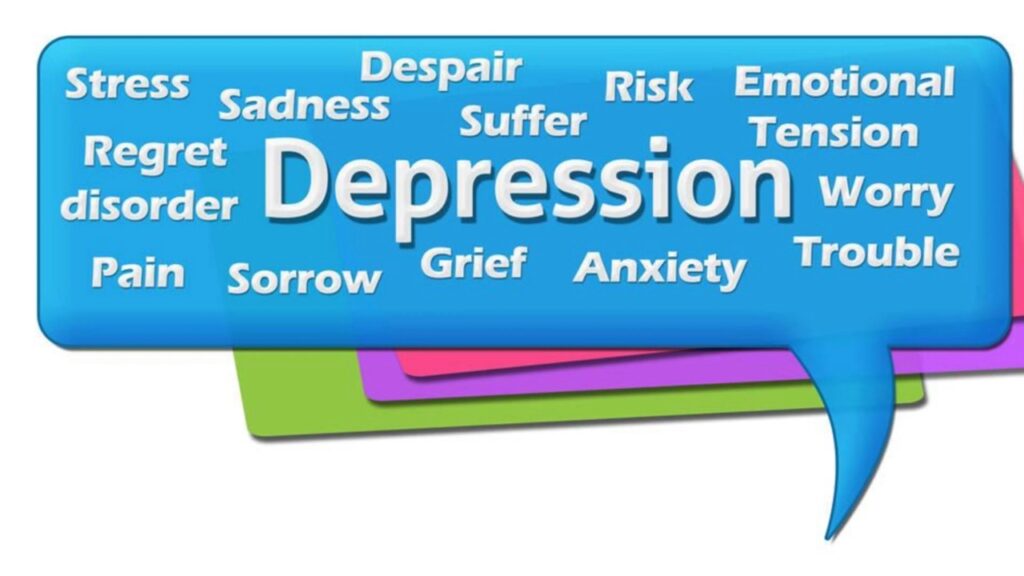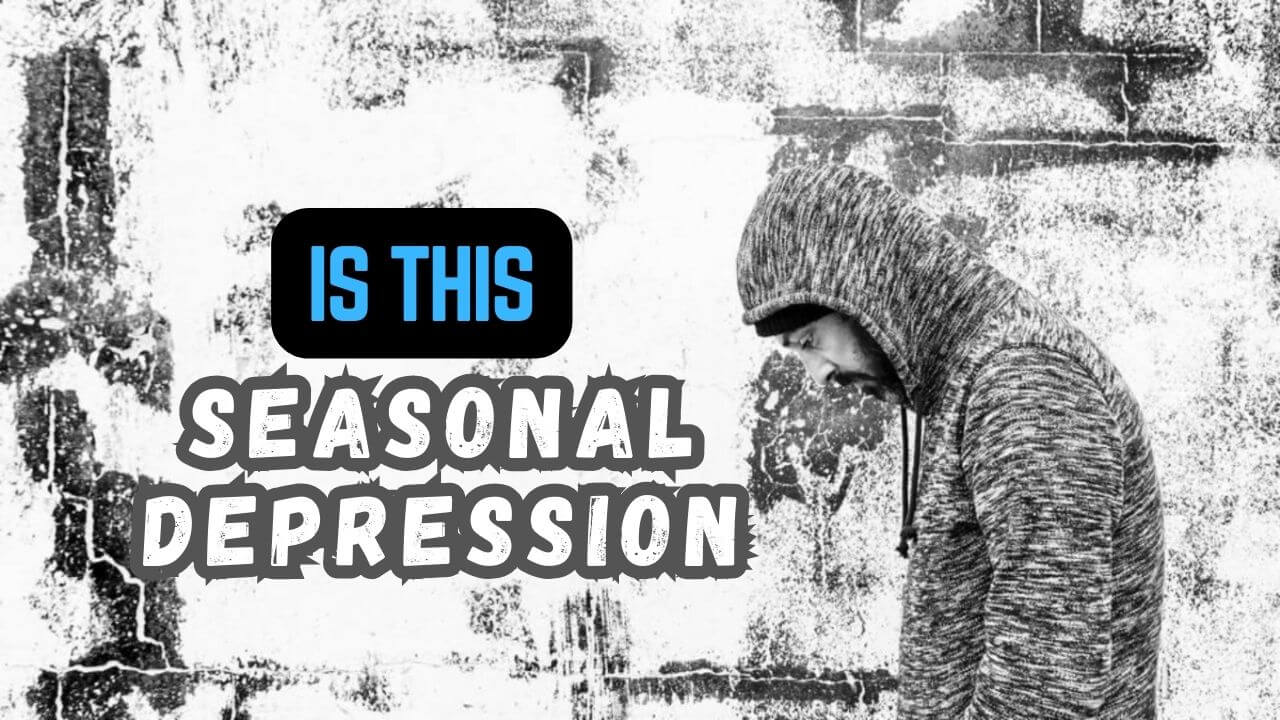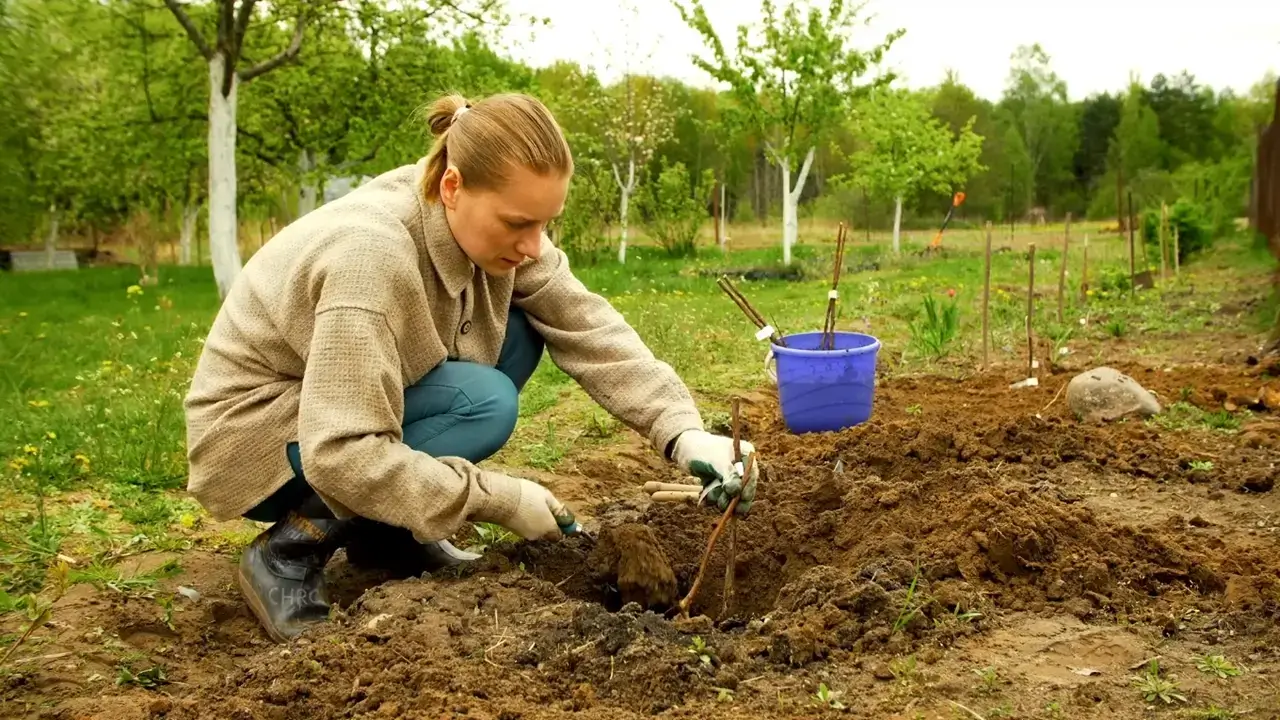Is loneliness bothering you, due to which you have started feeling depressed? Pay attention to its symptoms, it could be seasonal depression.

Some people like the cold winds and cold nights of the winter season, while others do not. Many people do not feel like doing anything this season.
Neeta, a resident of Norway, says, “There is no sunlight here for six months, in such a situation the mind remains very sad.”

Neha, a resident of Canada, says, “It is very cold here and there is no sign of sunshine. There is snow all around, in such a situation I feel sad.”
If you also feel like this due to extreme cold, then try to find out the reason, because this ‘sadness’ could be winter blues i.e. winter depression.

It affects those people around the world more, where there is no sunlight for months and the temperature remains below zero, such as countries like America, Britain, Norway, Canada etc.
Know the Symptoms
Feeling lazy, sad and tired throughout the day. Desire to sleep more and feel like eating more carbohydrates. The simple reason for this problem is lack of sunlight. Due to a lack of sunlight, our biological clock gets disrupted, which affects important hormones like serotonin and melatonin. Sunlight is not only important for vitamin D but is also useful for serotonin and melatonin.

Let’s delve into the symptoms and the importance of sunlight:
Symptoms:
- Feeling lazy, sad, and tired throughout the day.
- Increased desire to sleep more.
- Craving carbohydrates (such as sugary foods).
The Role of Sunlight:
- Biological Clock: Sunlight helps regulate our biological clock (circadian rhythm). Exposure to natural light during the day keeps our internal clock in sync.
- Serotonin: Sunlight stimulates serotonin production. Serotonin is a neurotransmitter associated with mood, happiness, and well-being.
- Melatonin: Sunlight exposure during the day helps suppress melatonin production. Melatonin is essential for quality sleep at night.
Beyond Vitamin D:
- While sunlight is crucial for Vitamin D synthesis, it also impacts other hormones like serotonin and melatonin.
- Spending time outdoors, especially in the morning, can positively affect our overall health.
Remember, balance is key—get enough sunlight while protecting your skin from excessive UV exposure! 😊🌞
Be Alert
Seasonal changes can significantly affect mental health. Although this disorder occurs more in women than in men, it is not necessary that everyone has this problem.
Symptoms usually go away during the spring and summer months, but people who already suffer from depression should remain alert.

Seasonal Affective Disorder (SAD) is a type of depression linked to seasonal changes. Here’s what you need to know:
Symptoms and Patterns:
- SAD symptoms typically start in fall and continue into winter. These may include feeling listless, sad, and tired, experiencing carbohydrate cravings, and having difficulty sleeping.
- Less commonly, some people have spring or summer onset SAD, with symptoms like trouble sleeping, poor appetite, and weight loss.
Risk Factors:
- Although more common in women, anyone can be affected by SAD.
- Those with existing depression should remain vigilant during seasonal transitions.
Treatment:
- Light therapy, psychotherapy, and medications can help manage SAD.
- Don’t dismiss these feelings as mere “winter blues.” Seek support and maintain well-being year-round.
Remember, understanding and addressing SAD can improve mental health. 😊🌟
Eat Dinner Early
For weight loss and good sleep, it is important to have dinner at the right time. In winter, try to have dinner early. This will help you sleep better and your mood will also improve.
Eating dinner early can indeed have positive effects on both weight management and sleep quality. Here’s why:
Weight Loss:
- Having dinner early allows your body to digest the food before bedtime.
- Late-night eating may lead to weight gain because the body’s metabolism slows down during sleep.
Improved Sleep:
- Eating too close to bedtime can disrupt sleep due to indigestion or acid reflux.
- Early dinners give your body ample time to process the meal, promoting better sleep.
Mood Benefits:
- Proper sleep positively impacts mood and overall well-being.
- By avoiding heavy meals late at night, you support better sleep quality and emotional balance.
Remember, consistency in meal timing contributes to overall health. 😊🌟
Meditation
The absence of sunlight often confuses our minds. And meditation keeps the mind from getting confused. Through meditation, the mind can be kept calm, and negativity also goes away.

Meditation indeed offers numerous benefits, especially during seasons with less sunlight. Let’s explore this further:
Sunlight and Mental Clarity:
- Lack of sunlight can affect our mood, energy levels, and mental clarity.
- Sunlight exposure helps regulate our circadian rhythm and influences neurotransmitters like serotonin.
Meditation’s Role:
- Regular meditation helps calm the mind, reduce stress, and enhance focus.
- It provides a sense of clarity, even when external conditions are challenging.
Negativity and Mindfulness:
- Mindfulness meditation encourages awareness of thoughts and emotions.
- By observing negativity without judgment, we can gradually let go of its grip.
Remember, incorporating meditation into your routine can positively impact your mental well-being. 😊🌟
Regular Exercise
It is important to do brisk walking, dancing or exercise in the gym, because winter depression can be defeated by this.
Physical exercise increases the level of endorphins, which is very important to keep our mood right. You can also do Surya Namaskar.

Regular exercise during winter offers several benefits for both physical and mental well-being:
Increased Endurance:
- Cold weather allows your heart to work more efficiently during exercise.
- You’ll sweat less and expend less energy, making workouts more effective.
Fat Burning:
- Exercising in the cold can double the amount of fat burned.
- It’s an excellent opportunity to shed extra calories.
Mood Enhancement:
- Physical activity boosts endorphin levels, improving mood.
- Combat winter blues and seasonal affective disorder (SAD) through exercise.
Remember, staying active during winter keeps you healthy and warm! 😊🌟
Nutrition
Winter often increases vitamin D deficiency, affecting mood and increasing feelings of depression. Eat things that nourish the body like salad, fruits and nuts.
Consult your doctor if you notice any problem. Along with this, include dairy products containing Vitamin D in your diet. Also eat salad, fruits and nuts.

During winter, maintaining adequate vitamin D levels is crucial for overall health. Here’s how you can address this:
Food Sources of Vitamin D:
Include foods rich in vitamin D:
- Fatty fish (such as salmon, sardines, and trout)
- Fish liver oils
- Egg yolks
- Cheese
- Beef liver
- Mushrooms
These can help compensate for reduced sunlight exposure.
Fortified Foods:
Some foods are fortified with vitamin D:
- Cow’s milk
- Soy milk
- Oat milk
- Almond milk
- Certain brands of orange juice and yogurts
Consult Your Doctor:
- If you experience symptoms or suspect deficiency, seek professional advice.
- Remember to balance your diet with a variety of nutrient-rich foods.
Stay well-nourished and take care! 😊🌟
Game of Hormones
Nowadays, people have started considering 'Winter Blues' as 'Winter Depression', which is wrong. Its cases are rarely seen in India. Winter depression mostly occurs in countries where the temperature remains below zero. In India, only those people who are already suffering from depression have this problem. This is the reason why the visits of depression patients to psychiatrists increases in winter. The main reason for this is less exposure to sunlight, due to which important hormones like serotonin and melatonin are affected, and you feel like you are in depression.
Seasonal Affective Disorder (SAD), often referred to as winter depression, is a specific type of depression related to seasonal changes. Let’s explore this further:
What Is SAD?
- SAD occurs in a seasonal pattern, typically starting in fall and continuing into winter.
- Symptoms include feeling listless, sad, and experiencing carbohydrate cravings.
- People with SAD may have disrupted sleep patterns and low energy.
Sunlight and Hormones:
Reduced sunlight affects two critical hormones:
- Serotonin: Sunlight exposure boosts serotonin levels, influencing mood.
- Melatonin: Sunlight regulates melatonin, which affects sleep patterns.
Prevalence in India:
- While SAD is more common in countries with extreme winters, it does exist in India.
- In our context, it often affects individuals already dealing with depression.
Seeking Help:
- If you experience prolonged symptoms, consult a doctor or mental health professional.
- Treatment options include light therapy, psychotherapy, and medications.
Remember, understanding SAD helps us address its impact on mental health. 😊🌟



































I haven?¦t checked in here for a while because I thought it was getting boring, but the last few posts are good quality so I guess I will add you back to my everyday bloglist. You deserve it my friend 🙂
Hey very nice website!! Man .. Excellent .. Amazing .. I will bookmark your site and take the feeds also…I am happy to find a lot of useful information here in the post, we need work out more techniques in this regard, thanks for sharing. . . . . .
you are really a just right webmaster. The site loading speed is amazing. It sort of feels that you’re doing any unique trick. Furthermore, The contents are masterpiece. you’ve done a wonderful task on this subject!
Useful info. Fortunate me I discovered your website by chance, and I am surprised why this accident didn’t happened in advance! I bookmarked it.
Nice blog here! Additionally your site so much up fast! What web host are you the use of? Can I get your associate hyperlink in your host? I desire my web site loaded up as fast as yours lol
You should take part in a contest for one of the best blogs on the web. I will recommend this site!
Excellent blog here! Also your web site loads up fast! What host are you using? Can I get your affiliate link to your host? I wish my website loaded up as quickly as yours lol
Simply want to say your article is as surprising. The clarity in your post is simply excellent and i could assume you are an expert on this subject. Well with your permission allow me to grab your feed to keep updated with forthcoming post. Thanks a million and please keep up the gratifying work.
Hello. splendid job. I did not imagine this. This is a fantastic story. Thanks!
It?¦s really a cool and useful piece of info. I?¦m happy that you shared this useful information with us. Please stay us up to date like this. Thanks for sharing.
naturally like your web-site however you have to test the spelling on quite a few of your posts. A number of them are rife with spelling issues and I find it very bothersome to inform the truth nevertheless I?¦ll surely come again again.
What’s Happening i am new to this, I stumbled upon this I’ve discovered It absolutely helpful and it has aided me out loads. I’m hoping to contribute & assist different customers like its helped me. Great job.
I got good info from your blog
You are a very clever person!
Whats up are using WordPress for your blog platform? I’m new to the blog world but I’m trying to get started and set up my own. Do you need any coding expertise to make your own blog? Any help would be really appreciated!
Keep up the wonderful piece of work, I read few content on this internet site and I think that your web blog is real interesting and has got circles of great info .